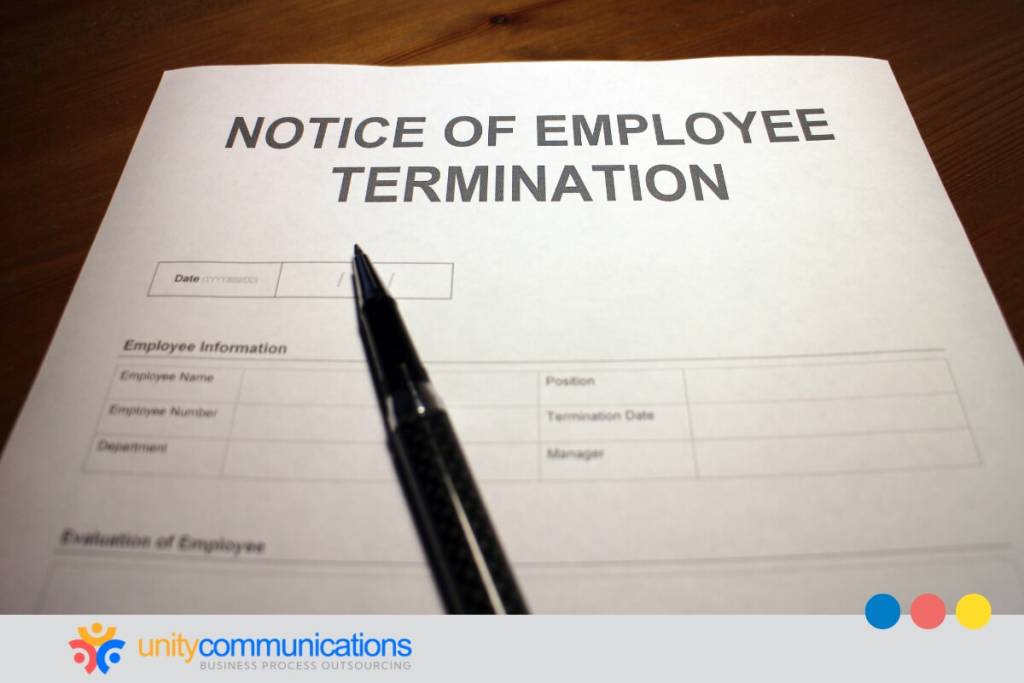Table of Contents
Technological advances and persistent global challenges push many businesses to seek third-party support. They rely on offshoring providers from the Philippines to take advantage of lower labor costs and high-quality services.
Before entering into an official agreement with these providers, companies need to know the latest trends impacting the business process outsourcing (BPO) industry in the Philippines. Peeking at the future of the country’s BPO market further guides you in developing well-structured investment strategies.
Learn more about the Philippine outsourcing sector and its continuous expansion. This article also discusses the industry’s recent shifts, challenges, and opportunities.
The Philippine BPO Market and Its Future Growth
Small, mid-sized, and large enterprises turn to the Philippine BPO sector to fulfill their tedious front- and back-office needs at affordable costs. They aim to leverage English-proficient, highly skilled Filipino professionals and advanced solutions for exemplary support services.
- Customer service
- Information technology (IT) support
- Data entry services
- E-commerce support
- Accounting and financial services
- Healthcare support
- Sales and marketing
- Cloud services
- Human resources (HR) support
- Manufacturing and logistics
- Order fulfillment and inventory management
- Knowledge and legal processing support
According to a report from the IT and Business Process Association of the Philippines (IBPAP), the Philippine outsourcing market achieved $32.5 billion in revenue in 2022 due to growing demand. The figure represents a year-over-year increase of 10.3%, surpassing the organization’s expected revenue expansion of 8% to 10%.
IBPAP cited the financial services, healthcare, retail, technology, and telecommunications segments as the primary drivers of growth. As a result, the Filipino BPO staff count rose 8.4% to 1.57 million to meet expanding needs.
Key Predictions for the Philippine BPO Industry
IBPAP projects the industry’s revenue to hit $35.9 billion in 2023. Moreover, the organization anticipates the business process outsourcing industry in the Philippines to expand to 1.7 million employees. Based on its research findings, cost optimization will remain the primary reason for outsourcing and seeking global business services.
The association’s survey states that BPO investments in the country will come from these sectors.
- Contact center
- Financial technology
- Healthcare
- Internet service
- IT support
- Shared service
- Cybersecurity
The report further notes that in 2023, Cebu and Davao will continue to serve as leading IT-business process management (IT-BPM) destinations. On the other hand, Iloilo, Clark, Pampanga, and Santa Rosa City, Laguna, will join the list of popular IT-BPM hubs.
Despite a possible global recession, IBPAP found that 83% of BPO firms still expect growth this year, while 17% remained neutral with their predictions.
Emerging BPO Trends in the Philippines
As the business process outsourcing industry in the Philippines experiences continued expansion, new industry trends also emerge. These market shifts, technological upgrades, and global issues influence business strategies and offerings. Businesses unable to keep up with the latest trends might be disadvantaged.
Before hiring a service provider, you must understand recent developments in the Philippine BPO sector. This lets you identify which provider can keep pace with the trends below while meeting your requirements.
Demand for Cloud-based Services Increases
Cloud-based services are highly in demand after the COVID-19 pandemic spurred the abrupt move to remote work. BPO providers use cloud solutions to let their staff work remotely, reducing transportation and related costs for their employees.
Cloud technology also helps boost operational efficiency and work performance. According to recent data from Owl Labs, 62% of polled employees feel more productive when doing tasks remotely.
Apart from in-house and employee benefits, cloud services let BPO companies offer the following advantages for their clients:
- Cloud solutions bring more flexibility and scalability compared to on-premises systems. Cloud technology helps BPO clients quickly scale their operations up or down without buying additional hardware or physical infrastructure.
- Cloud-based services cut expenses on hardware, software, and maintenance. Service providers offer cloud-based solutions such as contact center as a service (CCaaS), platform as a service (PaaS), and infrastructure as a service (IaaS) on a subscription or pay-as-you-go basis.
- Cloud-native products have robust security features that help vendors safeguard their clients’ sensitive data. BPO companies combine features such as encryption, multi-factor authentication, and firewalls with strict data privacy rules to strengthen information security.
Artificial Intelligence (AI) Adoption Extends
Business process outsourcing companies in the Philippines continue to adopt AI, especially in customer service. Despite previous concerns that the technology will replace human agents, Filipino service providers recognize AI as a powerful tool to augment their call and contact center processes.
AI simulates human cognitive functions to help automate repetitive tasks such as data collection and processing. The technology also enables self-service options for consumers to independently find solutions to purchase issues. These options include the following:
- Chatbots refer to AI-powered, chat-based virtual assistants designed to provide 24/7 customer support. This robotic process automation (RPA) technology is integrated into websites, social media messaging platforms, and mobile apps. It delivers immediate assistance to repetitive inquiries, reducing the need for human intervention.
- Voice assistants optimize natural language processing (NLP) and machine learning (ML) to conduct multiple tasks such as bookings and order processing.
- Interactive voice response (IVR) systems engage with customers via voice recognition and touch-tone keypad inputs. This automated telephone system streamlines technical support outsourcing services, consumer assistance, and call routing.
- Self-service kiosks are interactive touch-screen displays. This technology lets customers perform different activities, such as ticket purchasing and ordering. It helps minimize waiting times, enhancing customer satisfaction and retention.
- Online customer and employee portals enable users to access information, make payments, and submit requests over the internet. Businesses can customize these portals to meet a user’s specific needs. This brings a personalized self-service experience to users.
Moreover, AI-powered predictive analytics assists agents in delivering more positive interactions with customers. The capability provides support agents with relevant insights into complex customer issues, allowing them to respond quickly and effectively. This improves the customer experience, increasing consumer satisfaction and retention ratings.
Because AI can handle tedious, time-consuming BPO processes, Philippine providers only need to hire a few workers. This advantage leads to significant cuts in their HR expenses. In its recent research, Gartner expects contact center AI deployments to bring an $80 billion decrease in labor costs by 2026. In turn, providers can offer their services to clients at much lower prices.
Knowledge Process Outsourcing (KPO) Grows
As a trusted go-to hub for third-party support, the business process outsourcing industry in the Philippines constantly evolves toward higher-value functions such as KPO.
Today, the Southeast Asian archipelago has become a leading outsourcing destination for content production, editing and proofreading, publishing, and digital marketing. Hence, Statista projects that the Philippine digital media market’s revenue will hit nearly $2.4 billion in 2023.
The country’s high English literacy and proficiency rate attracts foreign clients to outsource their content writing and development to Filipino service providers. The Philippines got a global average score of 502 under the Education First English Proficiency Index in 2022. Significant labor cost savings also influence such companies to invest in Filipino BPO.
Other than those functions, foreign clients continue to entrust the following KPO services to Philippine providers:
- Financial service research and analytics
- Competitive intelligence monitoring
- Legal and paralegal services
- Medical research and development
- Animation and design
- Video game development
Outsourcing Verticals Diversify
While brands seek BPO diversification to maintain a competitive advantage, business process outsourcing providers in the Philippines undergo strategic transformation to meet such a demand. As a single-service provider, Philippine BPO companies continue to upskill their employees and improve their capabilities across various verticals.
Over the past two years, companies have prioritized accessing new markets and optimizing new enterprise models. Business leaders also explored ways to purchase instead of develop capabilities. They increasingly leverage service providers to support their highly integrated business and technological operating models.
By doing so, Deloitte’s report shows that more than 75% of executives saw growth in their company’s revenues. One in four emphasized significant expansion by over 10%.
Philippine providers thus continue to broaden their service delivery models to satisfy such specialized needs. Besides cost-reduction-focused traditional outsourcing, they offer tech-powered, outcome-oriented service packages.
Outcome-based Contracts Become a Priority
Philippine front- and back-office outsourcing providers prioritize outcome-based contracts as clients call for support services that deliver measurable results. These customers also want their third-party teams to help bring positive outcomes to their businesses.
Companies of all sizes face challenges trying to grow amidst a competitive global talent market. Technological advancements also outpace their ability to adopt new tools, expanding such gaps. Hence, they need help balancing costs and accessing new skills and capabilities.
According to the same Deloitte report, organizations rely on BPO to deliver agile and integrated services. They also use outsourced tech solutions to address issues associated with curating innovations and adopting new remote working norms.
Therefore, business process outsourcing vendors in the Philippines offer outcome-based contracts to help clients attain specific business targets. These deals provide greater visibility into the value businesses receive. Such agreements also help organizations keep pace with digital transformation, improving enterprise performance and their competitive edge.
The Bottom Line
The latest market trends and technology help shape business process outsourcing in the Philippines. Knowing such insights helps inform your investment decisions in the country’s BPO.
Learning how Filipino service providers leverage cloud services, AI solutions, and outcome-based agreements gives you the confidence to entrust your functions to them. Moreover, understanding how they broaden their expertise to KPO and diverse verticals guides you in making concrete BPO action plans.
After seeing the big picture, do not hesitate to contact Unity Communications. The award-winning service provider adapts to your support requirements. The Philippine BPO firm applies relevant market insights to help meet your output-oriented operational needs.




